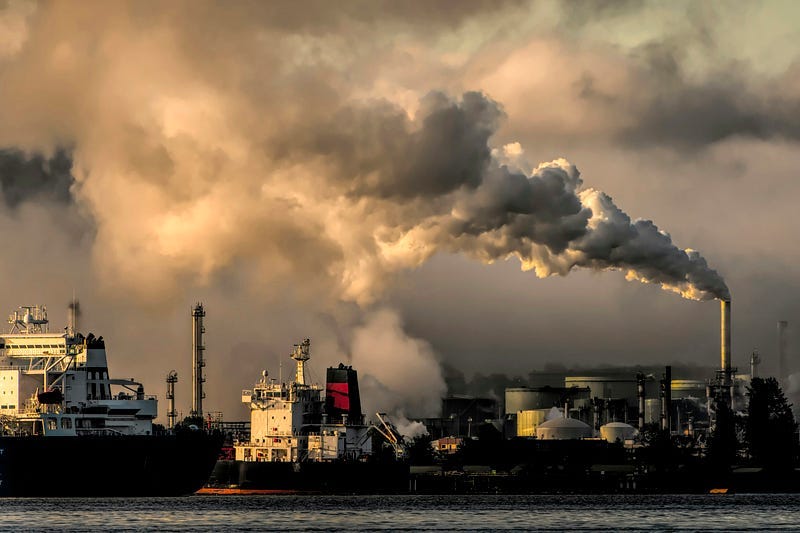
Stopping climate change can feel like a Sisyphean task. No matter how hard we try, our dependency on planet-wrecking oil seems to always persist. But the EU has just demonstrated that we can break this self-harming bond. In April 2024, fossil fuels produced less than a quarter of the EU’s electricity. During the same period, renewables generated 54% of the EU’s electricity! As such, the EU’s energy sector produced 19% less emissions this April than last. This is not only a vast leap forward, but it also proves that switching to net-zero renewables is 100% possible, and fossil fuels are dead. Let me explain.
This data comes from the energy think tank Ember. Fossil fuels have never produced such a small fraction of the EU’s energy mix. In fact, Ember found that Coal-fired plants, the most polluting form of energy, contributed just 8.6% to the EU’s energy mix in April, which is 30% compared to April 2023! Not only that, but gas power is seeing a 22% year-year decline. Meanwhile, renewables have grown by 22% in comparison to 2023.
In terms of carbon emissions, that is fantastic news. But, many right-wing or climate change sceptic media outlets have sown the seeds of worry that increased levels of renewables would lead to higher energy prices and an increased rate of blackouts. But that simply hasn’t happened.
Despite interest rates staying high, which can dramatically affect the cost per kWh of renewables, as the costs are front-loaded, energy prices across the EU dropped significantly in April 2024 compared to April 2023. France’s energy was 47.2% cheaper, Spain’s was 32% cheaper, and Sweden’s was 8.2% cheaper! All of these countries have significantly increased their renewable capacity over the past year, and Ember found that this directly led to cheaper energy. However, it isn’t just individual countries; the EU as a whole has cheaper energy thanks to renewables. Moreover, there have been no reported increases in energy blackouts caused by the EU’s increasing reliance on intermittent renewable energy.
However, possibly, the most surprising finding in Ember’s report was Germany. Over the past few years, Germany has closed all of its nuclear power plants, and they have had to build new coal and gas plants to make up for the shortfall. Yet despite this, they have actually grown their renewable capacity so much that they recorded the most significant fall in fossil fuel energy generation of any EU country at 26%! This means that 32% of the EU’s reduced fossil fuel usage actually came from Germany. So, while their move to scrap nuclear was a colossal mistake, it seems they are putting in the work to correct it.
So, is that it? Will renewables continue to expand now until fossil fuels fade away entirely? Well, not quite… There is one last piece to this puzzle.
You see, while blackouts haven’t been caused by cloudy or windless days, they have been caused by variances in voltage and frequency caused by renewables. Moreover, for renewables to provide a higher percentage of the energy mix, the energy grid must be adapted to be far more flexible. This includes using grid-level energy storage, long-distance energy transmission and energy sharing between EU countries.
Ember’s report proves that we can now expand renewable energy fast enough without breaking the bank. But, while investment in renewable production has skyrocketed, investment in the actual grid has lagged. For renewables to dominate and make fossil fuels a thing of the past, policymakers have to shift their focus to grid investment. Despite what you might have heard, this won’t cost an arm and a leg. Several grid-level energy storage solutions already cost less than $20 per kWh of capacity; at that price, the increase in energy efficiency they provide more than pays for their deployment. There are also numerous high-efficiency ultra-long distance energy transmission projects underway, like Xlinks’ Morocco to UK project, which will transmit Saharan solar energy to Britain profitably. So, once this shift in approach to developing the energy grid happens, renewable energy will become so plentiful and so cheap that fossil fuels will finally be dead and buried.
Thanks for reading! Content like this doesn’t happen without your support. So, if you want to see more like this, don’t forget to Subscribe and follow me on BlueSky or X and help get the word out by hitting the share button below.
Sources: Ember, Power Technology, GMK, Oil Price, Sky, Encyclopédie
de l’énergie



